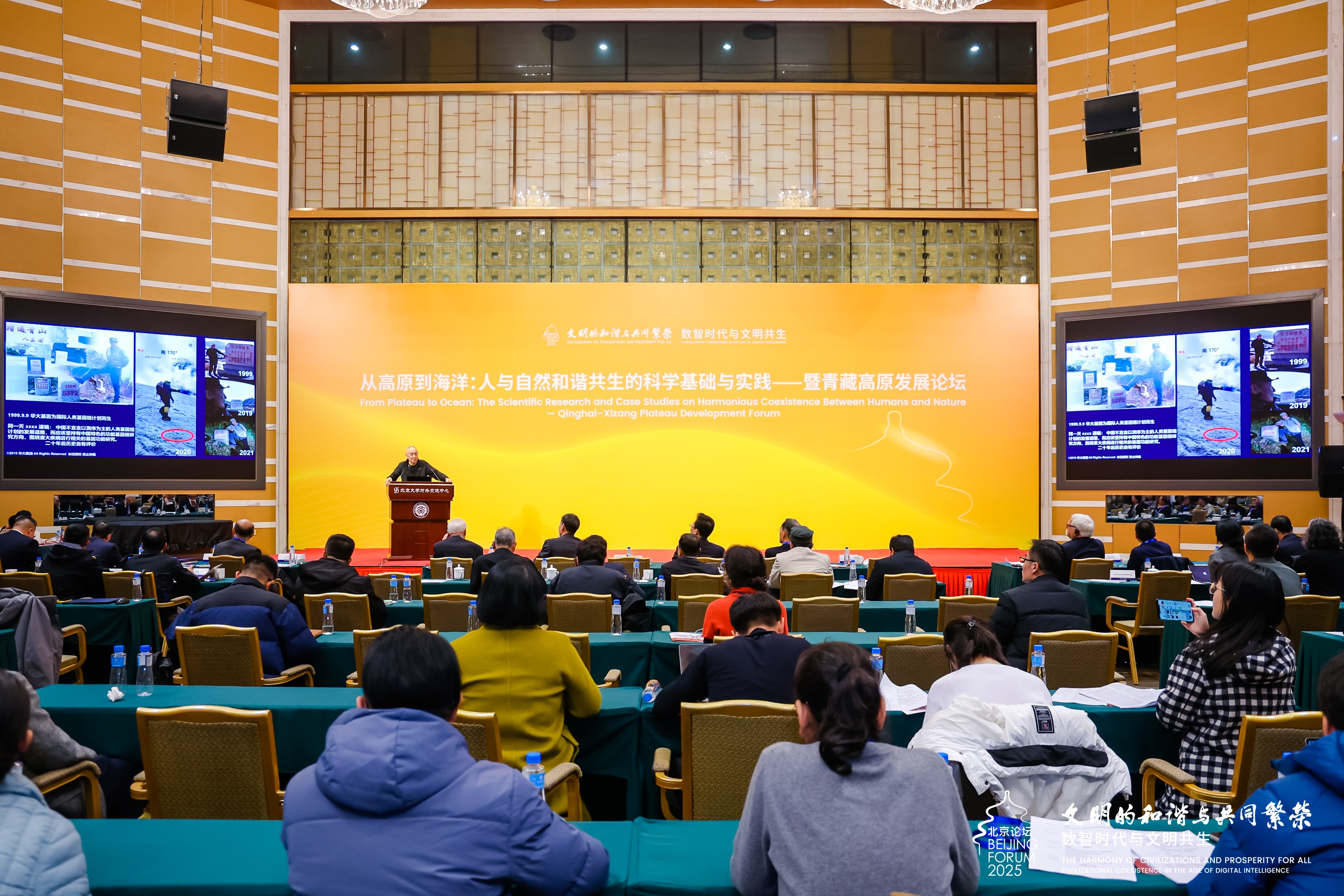 Peking University, November 11, 2025
Peking University, November 11, 2025: The Beijing Forum 2025 opened with a powerful theme: exploring the path to civilisational harmony in the digital age through the lens of sustainable development. This theme was brought into sharp focus at the Qinghai-Xizang Plateau Development Forum, a key panel session held at Peking University's (PKU) Yingjie Overseas Exchange Centre.
Under the thematic lens "From plateau to ocean: The scientific research and case studies on harmonious coexistence between humans and nature," the panel convened scientists, academics, government leaders, and entrepreneurs. The session served as a microcosm of the wider forum's mission, using the Qinghai-Xizang Plateau—a critical ecological shield for China and Asia—as a living laboratory to discuss how digital intelligence and scientific research can guide a sustainable future.
The panel was introduced by leadership from both Peking University and the Xizang Autonomous Region, who underscored a legacy of collaboration spanning over six decades. This set the stage for a multifaceted exploration of the forum's core theme.
Connecting Science, Society, and Sustainability
Academic insights formed the backbone of the discussion, directly linking research to the forum's focus on science-based solutions. Professor Sun Xianzhong from Xizang University detailed how AI is being leveraged to tackle public health disparities in the high-altitude region. This was followed by a significant announcement from Professor Zhu Tong from College of Environmental Sciences and Engineering, PKU, who revealed the official approval of the Institute for the Advanced Study of the Tibetan Plateau (IASTP). Designed as a collaborative think tank, the institute will use long-term climate monitoring to address environmental challenges, a direct response to the call for greater scientific input.
The scientific urgency was underscored by Yao Tandong, Honorary Director of Institute of Tibetan Plateau Research, CAS; and Academician of the Chinese Academy of Sciences, who presented stark data on the imbalance of the "Asian Water Tower," warning of a precarious hydrological shift driven by climate change. His message reinforced the forum's emphasis on the global implications of regional environmental stewardship.
From Research to Real-World Impact
The discussion seamlessly connected high-level science with ground-level impact, demonstrating the practical application of the forum's ideals. PKU Alumnus Li Yinhui, Chairman of Qinghai Huzhu Tianyoude Co., Ltd., championed the private sector's role in fostering sustainable community development. At the same time, Fang Kun, President of the PKU Xizang Alumni Association, highlighted how alumni are driving progress in healthcare, cultural preservation, and eco-tourism.
International perspectives further broadened the scope. Raymond Desjardins, Fellow of the Royal Society of Canada and Honorary Scientist from Agriculture and Agri-Food Canada, discussed reducing agriculture's carbon footprint, linking global food systems to climate goals.
Concluding the session, Wang Jian, Chairman and Co-founder of BGI, powerfully encapsulated the "plateau to ocean" vision, pledging to support development and ecological protection from the highest peaks to the deepest ocean trenches.
The panel demonstrated that the path to civilisational harmony is inextricably linked to the scientifically informed stewardship of our planet's most vital ecosystems, setting a compelling agenda for the rest of the Beijing Forum 2025.
Written by: Jawad Shabbir
Edited by: Chen Shizhuo
Photo by: Office of Internaitonal Relations, PKU
